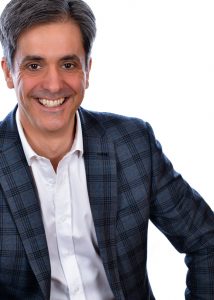Taken from the preface of the book Live Young TWO times longer (2018).
 A short biography of Jean-Yves Dionne, pharmacist.
A short biography of Jean-Yves Dionne, pharmacist.
A pharmacist with an exceptional reputation and credibility in Quebec, Mr. Dionne is recognized as an expert in natural health products (NHPs) and possible medication interactions, by many professional organizations in the health field.
He teaches at the Faculty of Pharmacy at Laval University, in the Department of Pharmacology at the University of Montreal and in continuing medical education, “Developing expertise in natural health products” at the Académie de l’Apothicaire (www. jydionne.com and www.apothicaire.ca).
From democracy to prevention
In the 15th century, an invention brought about a radical change in the European society: the invention of printing by Gutenberg. This invention pushed the arrival of a revolutionary notion, quite simple for our contemporary sensibility, but alarming for the powers of the time. This notion was the democratization of knowledge. Indeed, the arrival of more accessible books allows us to glimpse a time when all citizens will have access to education. The printing press paved the way for the Protestant revolution.
In the 16th century, Martin Luther advocated a religion in the language of the people and a bible for everyone. In doing so, he created a schism with the Catholic Church at the time that claimed that the people did not have the capacity to understand the sacred texts, and even less to apply them to their own lives.
The accessibility of knowledge percolates through society and leads to the destabilization of monarchical powers and the beginning of democracy … not without issues.
Today we live in a time when this same debate is happening again. The advent of the Internet, with an even greater accessibility to knowledge, is accelerating the opening of society. Popular science books abound. The speed of dissemination and the possibility for everyone to be able to learn and ask questions has no equivalent throughout history.
As in Gutenberg’s time, the masters of knowledge would still make us believe that we do not have the capacity to understand or apply science, that only a certain education allows the initiate to judge what is good for us. Apart from these teachings, no salvation!
However, we only have to think about TED talks, the various university courses open to everyone or the Open Source databases to understand that it is now possible to be a genuinely self-taught in fields that are not within our specialty. It is clear, however, that not everyone will become a specialist just by looking at the information available for free. No matter how much I read all the surgery sites and listen to all the YouTube videos on the subject, I won’t become a surgeon. However, when it comes to my health, I can now talk to my doctor or other professionals on an equal footing. This movement is reflected in the popularity of Wellness, anti-aging, individualized physical activity and all these currents of thought that start with the “people”.
The role of the health professional is not to determine what is good or what is bad, as the priest once did. Rather, its role is that of a guide accompanying everyone, as a unique individual, to help them navigate this often contradictory sea of information riddled with conflicts of interest. The criterion for selecting a professional is now an ability to explain the ins and outs of this or that therapeutic gesture, for the use of this or that product. They must be able to explain why their recommendation is right, if not the best. The paternalistic attitude “I know better than you” no longer has its place.
This book by Éric Simard and Jacques Lambert is part of this deep social movement. A wealth of information on health, on aging, based on the most rigorous science and explained so that you and I can make up our own minds. It is rare to find an accessible book that contains as many lessons applicable from the first reading.
I probably won’t be able to delay the hour of my death. I have no control over many of the future events that will affect my life. However, the actions I take every day are under my control. This book is one of the exceptional tools that help us orient our choices for a long, happy and healthy life path.
By reducing all known risks, metabolic pathways of aging and pathologies, we can avoid the maximum harmful consequences. Because basically, anti-aging, what is it? It’s absolute prevention. Not to be confused with early detection (but that’s another story).
Wishing you a good reading!
Jean-Yves Dionne, pharmacist
Eclectic apothecary






